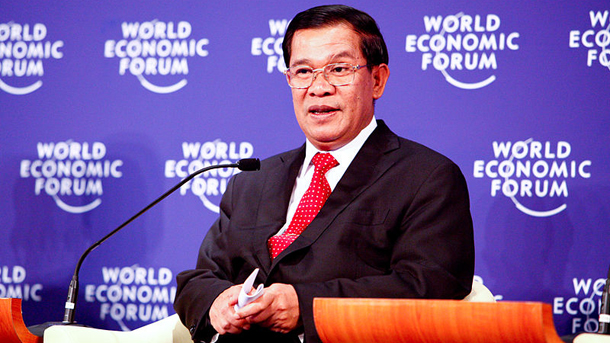PHNOM PENH, Cambodia—Prime Minister Hun Sen temporarily suspended new land concessions to private companies on Monday in an effort to ease political pressure over an issue that has triggered social unrest and occasional violence.
The timing of Hun Sen’s action seemed to reflect his usual political astuteness, coming less than two weeks after the slaying of a prominent local environmentalist investigating illegal logging turned the spotlight on shady practices involving government land. The April 26 shooting death of Chut Wutty by a military policeman near where a Chinese company is building a hydropower project drew worldwide condemnation.
Monday’s directive also came during a visit of a special United Nations envoy on human rights, Surya P. Subedi, who stated that he plans during his weeklong mission to examine the situation of land concessions and “their impact on the human rights of local communities.”
Land concessions have been the focus of allegations of land-grabbing by big businessmen tied to corrupt officials and triggered violent clashes when residents were forcefully evicted.
The directive said its purpose was to strengthen the effectiveness of land management and that concessions will be revoked from licensed companies that fail to honor their agreements, such as by illegal logging or reselling the land. It did not say how long the suspension would last.
Such concessions typically involve clearing forest land for plantations to grow cash crops such as rubber, cassava, oil palm and sugar cane.
The Cambodian human rights organization Adhoc reported in March in its annual report that more than two million hectares (4.9 million acres) of land, mostly forest, had been granted by the government to 225 companies, foreign and domestic. Up-to-date figures were not available from the government.
Adhoc’s report said that the concession land issue was at the center of chronic land disputes.
In one such case in January this year in Kratie province, private guards shot and wounded at least four people in a group of about 100 villagers who were trying to stop bulldozers from destroying their cassava plantation.
Ny Chariya, the chief investigator for Adhoc, said on Monday he welcomed Hun Sen’s directive as a means of reducing the number of land disputes, but was unsure whether it would be fully implemented.
He said thousands of families had been affected by such land disputes, and as many as 200 displaced people faced legal action for their resistance.

















